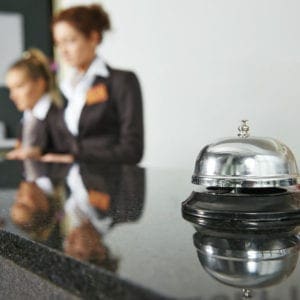 During most of my meetings with hoteliers, I hear the question, “How can we get more direct bookings?”
During most of my meetings with hoteliers, I hear the question, “How can we get more direct bookings?”
Most hotels are listed on accommodation/booking portals, and I don’t dispute that guests love these websites are they’re a one-stop shop for practically every hotel in any destination. For hoteliers, however, there’s a glass ceiling: these listings can’t normally be customised to show how amazing their place truly is, and the portal takes a percentage of each booking. Surely there’s a way to reach more guests directly?
There is. It’s called SEO.
SEO, or search engine optimisation, is the process of applying proven principles to a site’s design and content so that its visibility in the search engine results is greatly improved. Some of it is basic, like inserting your preferred keywords in page text, ensuring that it reads naturally and not like search engine spam. Other methods require a little more expertise, especially if you want your hotel to rank highly for accommodations in a different district or city.
Is your website SEO friendly?
In other words, is it coded and structured so that a search engine can read it accurately? And is it mobile-friendly, so potential guests can view it on portable devices like tablets and smartphones? The latter has been especially important since April 2015, when Google started penalising non-responsive sites.
As a hotelier, you may not consider coding your forte, but you can ensure that you hire a SEO agency who’s fluent in SEO requirements.
Selecting keywords and title tags
Keywords are the phrases that best describe your hotel. There’s no secret formula to choosing them: simply imagine what search terms you would like the hotel to rank well for. “Hotel near Heathrow”? “Hotel in downtown Manchester?” Once you select a few phrases, visit Google’s online keyword tool, type yours in, and see which variations draw the most search traffic. Some are highly competitive, and ranking well for them may take some extra time and effort.
Once you have your keywords, put together your Meta Title Tags using this simple formula:
Primary Keyword | Your Hotel Name | Secondary Keyword
Meta Title Tags should be under 70 characters, so if adding the secondary keyword makes it too long, save that keyword for another page.
Write one Meta Title for each page on your site and add your primary keywords on the most important/relevant pages. (If you are not creating the site yourself, give all these details to your web developer.)
Producing the right content
You don’t need to be a coding guru for this part, but you must be able to write persuasive copy for each page. I can’t emphasise the importance of this SEO element enough. Quality content is king, and results in consistent and predictable search rankings.
So what is good content by SEO standards?
- Well-written, topic-relevant copy that reads naturally
- Complements the keywords in each page’s Meta Title Tags
- No keyword stuffing or link spam
Each page must contain relevant keywords, but don’t overuse them. The moment the content looks and reads like keyword spam, you’re doing something wrong, and Google will notice.
Emphasising relevancy
You’ve created a site that provides search engines with the name of your hotel and information about its amenities. So far, so good. Now you have to convince them that your establishment deserves a higher rank than your competitors.
Years of performing SEO for hotel sites has led me to conclude that two factors have a heavy influence on how search engines determine relevancy:
- Optimised local listings: Hotels are essentially local businesses. They may serve an international client base, but from a single location. To benefit from the local relevancy advantage, you must claim, optimise, and manage your Google+ Local Page, Bing Local Listing, and Yahoo Local listing. By including contact information that matches what you publish on your website, you are informing the search engines that you are indeed located in a certain area and will benefit accordingly.
- Unique and relevant links: When your hotel site is listed on what Google recognises and trusts as ‘authority’ sites, search engines will see your business as trustworthy too. Approach established local businesses and organisations and arrange to exchange mutually beneficial links.
Once a potential guest finds your hotel’s site thanks to your diligent SEO, convince them that your establishment is an amazing and affordable place to stay. Portal agreements may hinder you from offering a cheaper price, but you can do the following:
- Promise the lowest price guarantee
- Make the booking process quick and easy
- Post beautiful, professionally shot images of the hotel exterior, rooms, and amenities
SEO can bring you the traffic, but once people visit your site, it’s up to you to convince them to book. Being a first-rate hotel whose excellence is reflected by its website will take care of that part.
About the author
 Shaz Memon, creative director at Digimax. Shaz has been tutoring professionals in the creative industry since he was 18, and has gone on to win multiple awards for his work. Regarded as one of the most creative designers in the industry today, Shaz works with leading names such as BBC, FHM, Barclays.
Shaz Memon, creative director at Digimax. Shaz has been tutoring professionals in the creative industry since he was 18, and has gone on to win multiple awards for his work. Regarded as one of the most creative designers in the industry today, Shaz works with leading names such as BBC, FHM, Barclays.















